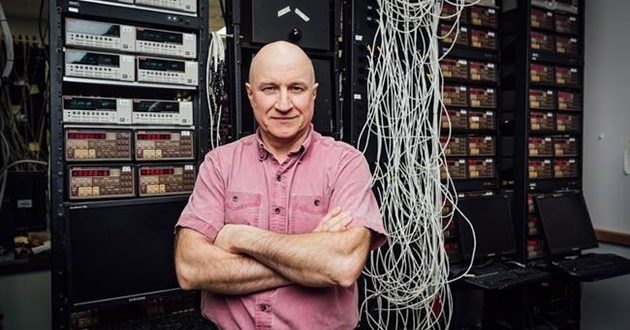Jeff Dahn, A leading scientist who is working with Tesla to make better lithium-ion batteries has won the $1-million Herzberg prize, Canada’s top science award.
The esteemed prize is akin to a lifetime achievement award, celebrating sustained excellence and overall influence of research work conducted in Canada. It’s an incredible honour for Dr. Dahn, a researcher who’s made Dalhousie his home base for more than two decades.
It’s also a milestone award for the university itself. With Dr. Dahn’s win, three of the past four Herzberg recipients have been Dalhousie faculty — a very rare feat in the 20-plus year history of the award. Dal microbiologist Ford Doolittle received the award in 2014, while theoretical chemist Axel Becke was awarded the 2015 medal.
“Dal’s Herzberg Canada Gold Medal recipients exemplify research excellence in Canada,” says Martha Crago, Dalhousie’s vice-president research. “In Dr. Dahn’s case, his leading work in materials science and lithium-ion batteries has attracted the attention of many all over the world and launched him into a class of his own.”
Dr. Dahn says he was “stunned” when he heard he would be receiving the Herzberg, which comes with a $1-million research prize.
“It was pretty flattering, and the award will support our research going forward,” he says. “We’ll use it wisely.”
He adds the Herzberg Gold Medal award to an impressive set of awards and honours throughout his career. They include the inaugural Governor General’s Innovation Award (2016), the Yeager award from the International Battery Materials Association (2016), induction into Nova Scotia’s Science Hall of Fame (2016), fellowship in the Royal Society of Canada (2001). He even has a second Herzberg award — a different medal, also named after Nobel-winning German-Canadian physicist Gerhard Herzberg, from the Canadian Association of Physicists.
“Writing the book” on Li-ion batteries
Dr. Dahn first came to Nova Scotia at age 13, emigrating with his family from Connecticut. He studied Physics at Dalhousie as an undergrad before completing his PhD at the University of British Columbia. He worked at the National Research Council of Canada, Moli Energy Limited and Simon Fraser University before returning to Dalhousie in 1996 as the NSERC/3M Canada Industrial Research Chair in Materials for Advanced Batteries. (Since 2003, he’s also been the Canada Research Chair in Battery and Fuel Cell Materials.)
From the beginning, his research focused on the science of batteries and energy storage. In the 1980s, researchers were beginning to explore using lithium compounds as the core electrode materials in lithium batteries. Today, lithium-ion batteries — which don’t actually contain lithium metal at all — power rechargeable devices of all sorts, from cell phones and laptops to tools and electric vehicles.
Agencies/Canadajournal
 Canada Journal – News of the World Articles and videos to bring you the biggest Canadian news stories from across the country every day
Canada Journal – News of the World Articles and videos to bring you the biggest Canadian news stories from across the country every day



